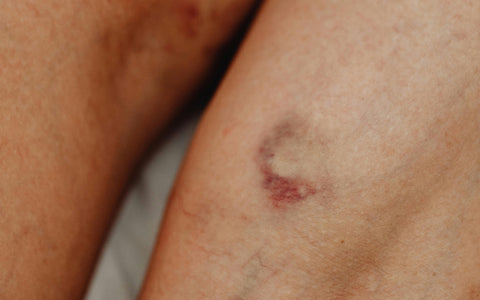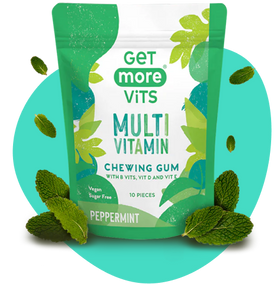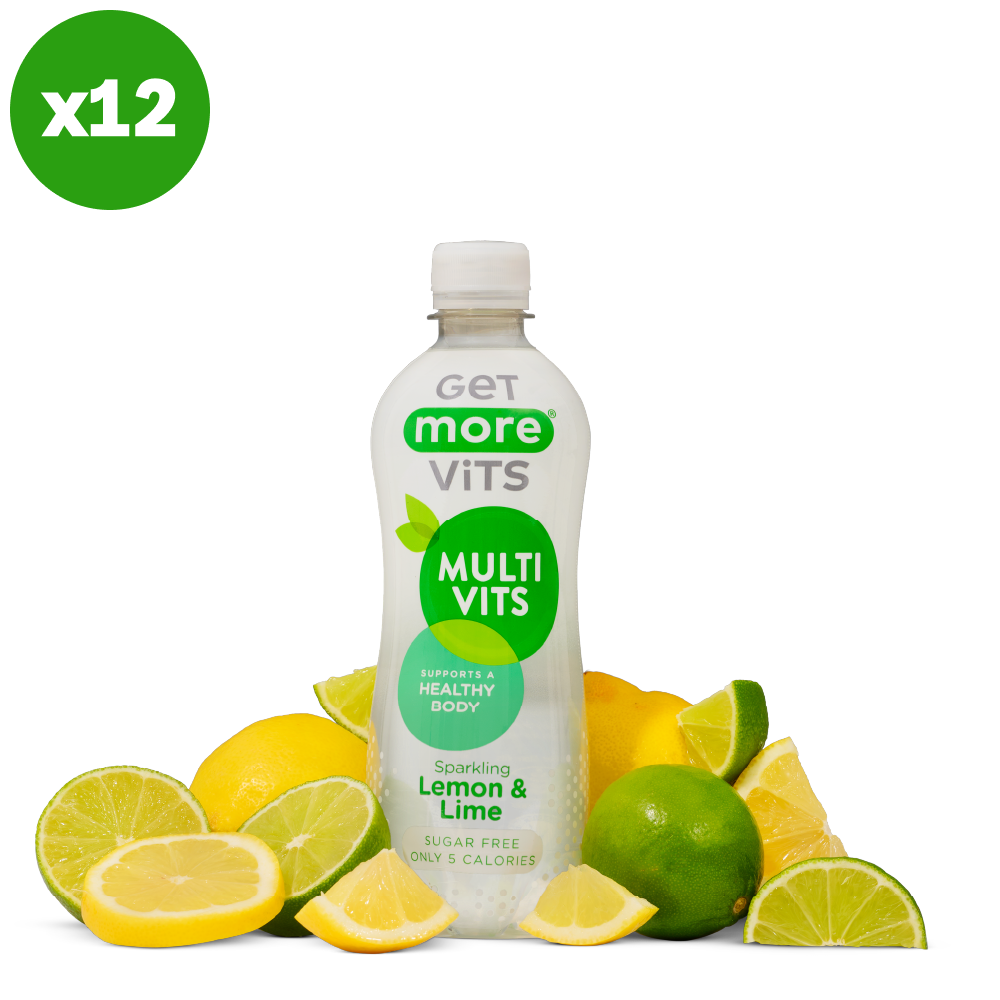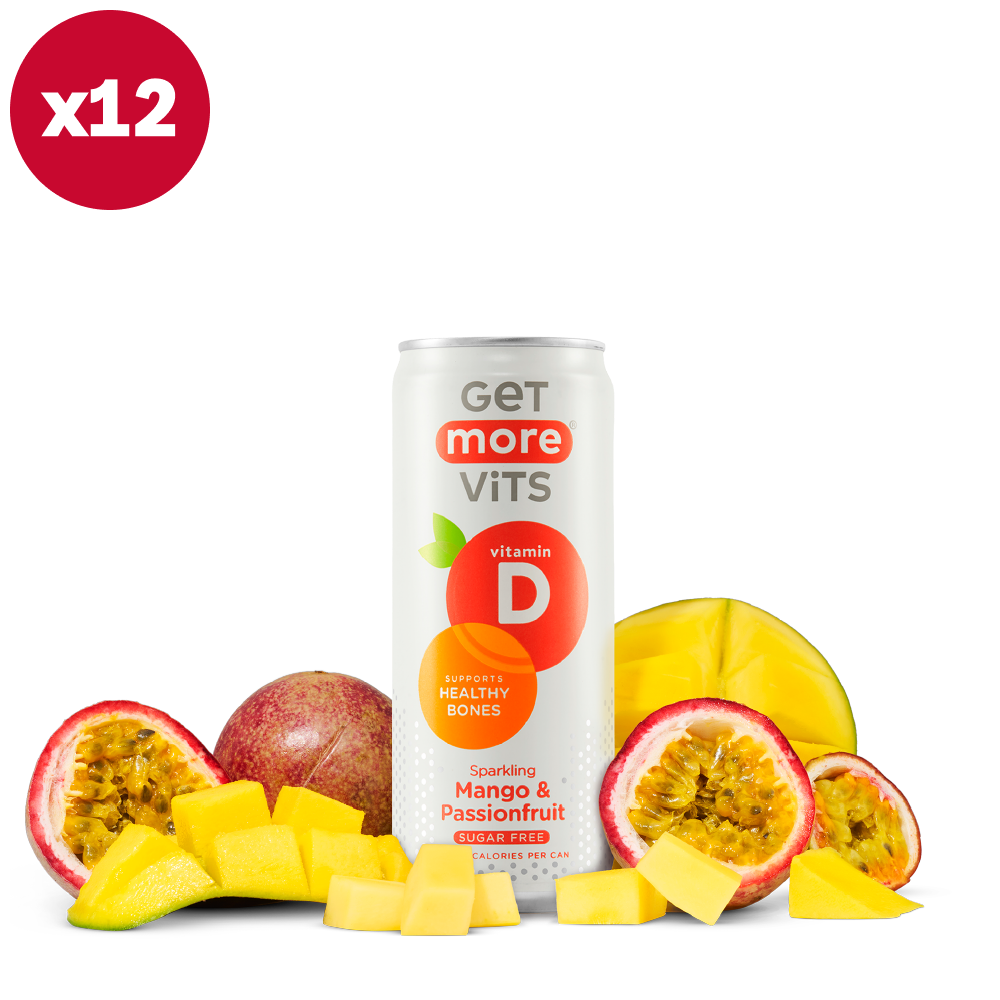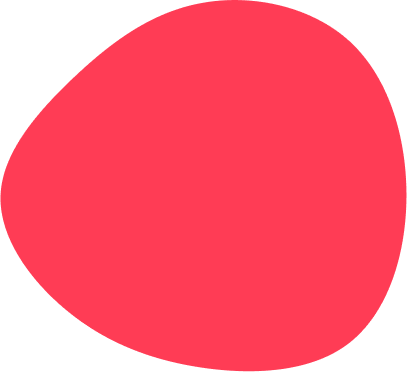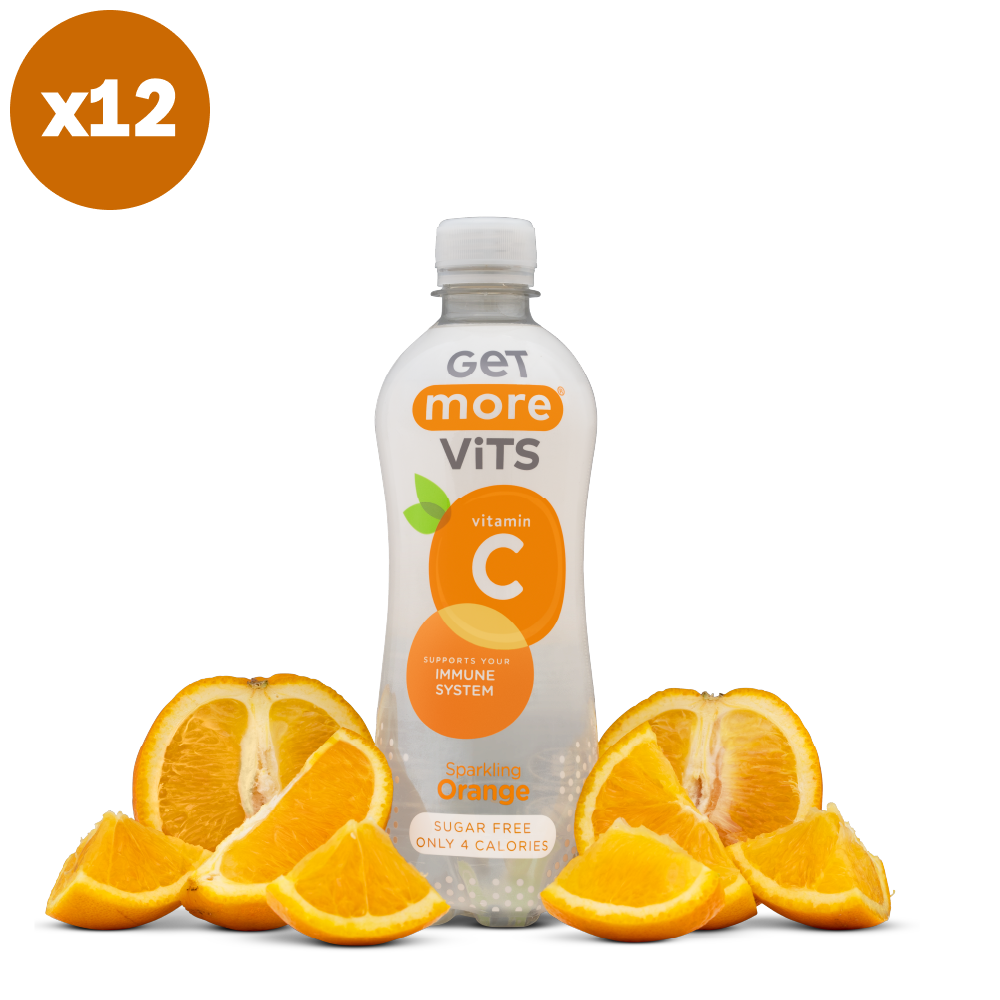Bruises are a natural consequence of minor injuries. However, some people are more susceptible than others, which can indicate an underlying medical condition or a potential deficiency in our diets.
Within this post, we will outline the vitamins and nutrients in our diets that help to reduce bruising and the easy ways to include them in our diet.
Why Does Bruising Happen?
Most bruises occur when small blood vessels close to the skin's surface are broken by the impact of a blow or injury.
According to Mayo Clinic, women and older people are more prone to bruising as their skin becomes thinner, meaning it is less protected against impact.
Common Reasons For Bruising Easily
Age

As you age, you lose the fatty layer under your skin, and your blood vessels weaken, making you more susceptible to bruising.
With thinner skin, any bruising is also more obvious, so bruises can often look worse than they actually are.
Medication
Some medications, including blood thinners and antidepressants can make you more prone to bruising.
This is because these medications can affect your blood's ability to clot, so even the smallest of knocks can result in a hefty bruise.
Genetic Bleeding Disorders
Genetic conditions can affect how susceptible you are to bruising.
Genetic blood disorders, such as haemophilia affect the blood clotting factors and therefore lead to excessive bleeding and bruising.
If you are worried about any genetic blood disorders, you should always speak to a healthcare professional.
Sun Damage

The UV rays from the sun damage the walls of the surface-level blood vessels causing them to become very thin, leading to them being very fragile and, therefore, more susceptible to bleeding and bruising.
So always make sure to protect your skin from the sun if you want to avoid those unwanted bruises.
Certain Dietary Supplements
There are a few dietary supplements which, however good for you they are, have been proven to cause bruising.
Fish oil, ginger and vitamin E are all known to potentially affect the quality of blood platelets leading you to bruise more easily than normal, however these nutrients would have to be taken at very high doses to cause blood thinning.
Too Much Alcohol
 Alcohol causes your blood vessels to dilate, increasing the blood flow to the surface of your skin.
Alcohol causes your blood vessels to dilate, increasing the blood flow to the surface of your skin.
More blood flowing through veins means it is easier for blood to escape when knocked, which then causes bruising.
Cancer
If you have leukaemia, you are more likely to bruise because your body cannot produce enough platelets to clot your bleeding blood vessels.
Leukaemia Care states bruises which indicate cancer, occur frequently and do not disappear. If you notice these types of bruises, you should go to your doctor immediately.
Vitamin Deficiencies
Plenty of vitamins help with all-around health, including the health of your blood.
If you have a vitamin deficiency, this can cause important structures, such as blood vessels, to become weak, resulting in a higher risk of breakage and then bruising.
Some vitamins play a vital role in blood clotting, so if you become vitamin deficient, not only will your blood vessels be weaker, but your blood's ability to clot will be reduced, causing more intense bruising.
Platelets are also the first step in blood clotting, and vitamins such as iron helps to maintain platelet production - if this is low, then you risk unexpected bleeding and reduced clotting when the blood vessels are ruptured.
What Are The Best Vitamins To Help With Bruising?
Vitamin C
How Does It Help To Reduce Bruising?
Vitamin C is vital for repairing your body, so when you don’t get enough of it, you may start to bruise easily.
According to an article from PubMed, vitamin C plays a role in all stages of wound healing, from inflammation and repair via collagen production to maturation, i.e. scarring/healing. Deficiencies of vitamin C can impact the healing process, causing an overall slower process.
Vitamin C also helps to strengthen your blood vessels by facilitating the production of collagen. This is the connective tissue in our body, and without it, wounds would not be able to repair damage to our body, including broken blood vessels.
Where Can You Find It?
Vitamin C is found in a wide variety of fruit and vegetables, including:
- Oranges
- Peppers
- Limes
- Tomatoes
- Strawberries
- Broccoli
Recommended Dosages
The recommended daily dose for adults is 80mg. This can come from diet alone, but if your diet isn't very fruit & vegetable rich or you want an extra boost, it is a good idea to supplement.
Our vitamin C drinks contain 160mg (200% of you recommended daily dose)

Vitamin K
How Does It Help To Reduce Bruising?
Vitamin K aids in the production of proteins which are used within the body for blood clotting.
Those who may be on medications which cause blood thinning are recommended to take in more vitamin K as it can help to counteract the effect of blood thinning from medications.
Where Can You Find It?
Vitamin K is primarily found in leafy greens and vegetables such as:
- Kale
- Spinach
- Broccoli
- Brussel sprouts
Recommended Dosages
Dosage for vitamin K varies on body weight. The NHS advise adults need around 1 microgram per kilogram they weigh (for example, a person weighing 70kg needs 70 micrograms of vitamin K per day.
Vitamin D
How Does It Help To Reduce Bruising?
Studies have shown that vitamin D has wound-healing properties and can speed up the healing process of bruising by assisting with collagen production.
Woundsource stated how vitamin D helps to inhibit the inflammatory response caused by wounds by aiding the production of epidermal (skin) and platelet (blood cell) growth factors, which are needed to heal wounds from the inside out, including bruises.
Where Can You Find It?
Vitamin D is found in foods such as:
- Oily fish
- Red meat
- Liver
- Egg yolks
Our Vitamin D drinks are a great way of increasing your vitamin D intake, perfect to grab on the go. Each 500ml serving contains 10 micrograms of vitamin D.

Iron
How Does It Help To Reduce Bruising?
Iron is used to produce red blood cells, which help store and carry oxygen in the blood. If you are not getting enough iron, blood cells won’t be able to get the oxygen that it needs to function. This may make your skin more susceptible to bruising.
Where can you find it?
Foods high in iron include:
- Liver (but avoid this during pregnancy)
- Red meat
- Beans, such as red kidney beans, edamame beans and chickpeas
- Nuts
- Dried fruit – such as dried apricots
- Fortified breakfast cereals
- Soya bean flour
Zinc
How Does It Help To Reduce Bruising?
Zinc helps with growth and repair in the body and is needed for the chemical healing process.
Zinc is a highly valuable micronutrient, and studies have stated it plays a major role in regulating the healing process by structuring the membrane repair, reducing inflammation and improving the body's immune defence.
Therefore when a bruise occurs, if you have enough zinc in your diet, your body will be able to lessen the appearance of the bruise and reduce the time it takes to heal.
Where Can You Find It?
Foods high in zinc include
- Crab
- Beef
- Pork
- Lobster
- Chickpeas

Recommended Dosages
It is recommended adults consume 4 mg of zinc a day.
Best Vitamins For Skin Health
For more information on maintaining skin health, our post on the best vitamins for skin health has some great tools and advice for keeping your skin glowing and healthy with the right vitamins.

Summary
Bruising can occur for multiple reasons and can be the result of many health problems, such as:
- Iron deficiency anaemia
- Genetic disorders
- Cancer
- Vitamin deficiencies
- Sun damage
But some people are just more prone to bruising than others, and finding ways to minimise or prevent the appearance of bruises can do wonders for your confidence and overall health.
Vitamins such as K, D, C and zinc help improve the structure and strength of blood vessels and speed of the healing process.
